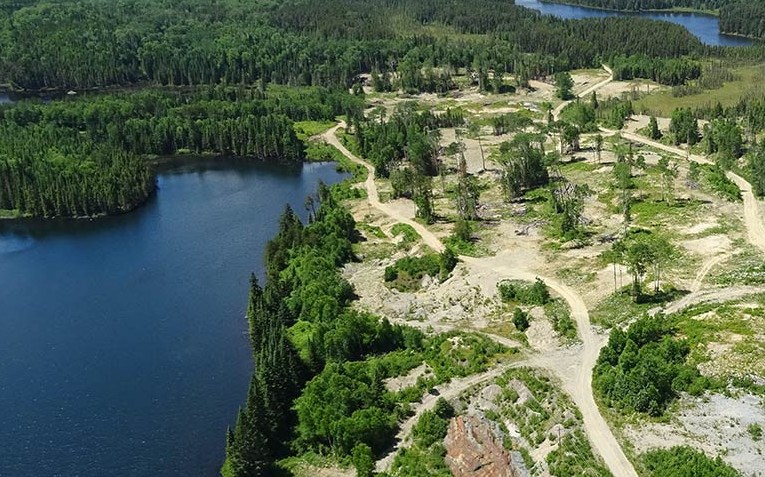Ottawa has given a thumbs-up for Argonaut Gold to proceed with a proposed open-pit gold mine outside of Dubreuilville.
Federal Environment and Climate Change Minister Catherine McKenna announced Jan. 24 that the Magino Gold Project is not likely to cause significant adverse environmental effects.
The 2,200-hectare property is a former underground gold mine, 40 kilometres northeast of Wawa and 14 kilometres southeast of the town of Dubreuilville. Magino is located just east of Alamos's Island Gold Mine.
Valued at $427 million, Magino could create up to 550 construction jobs and 350 mining jobs.
In acknowledging the milestone moment, Argonaut president-CEO Pete Dougherty called Magino a “strategic, long-life asset” blessed with good economics, size, location, and infrastructure that gives them the flexibility to develop the mine on their own or with partners.
“Our plans in 2019 are to continue our work to secure other key authorizations required for the project, as well as continue our detailed design and engineering efforts,” he said in a Jan. 28 news release.
The company anticipates the conclusion of the provincial environmental assessment by the middle of this year, with other regulatory approvals, such as a construction permit and mine closure plan approval, expected in 2020.
Over its sporadic mine life, which began after the First World War, Magino produced 114,319 ounces of gold, grading 4.43 grams per tonne.
A feasibility study released by the company in late 2017, outlining the case for an open-pit, described it as a scalable operation that can expand should the project’s economics improve or should a joint-venture partner enter the picture.
If Argonaut goes it alone, the study projected a 17-year mine life with production of 150,000 ounces of gold in the first five years.
The average grade out of the pit is 1.4 grams per tonne.
The operation will involve a fleet of front-end shovels, a loader, and haul trucks. The fleet will be supplemented by drills, graders, track and rubber-tire dozers.
To minimize the impact of mining activity on the land, the federal government said Argonaut must adhere to 120 conditions to protect fish and wildlife habitat, protect human health, and allow First Nations to use the area for traditional purposes.
"Following rigorous scientific evidence, extensive Indigenous and public consultations and conditions to protect the land, water, wildlife and Indigenous rights, this project can proceed to create hundreds of good jobs for the community and support clean economic growth," said McKenna in a statement.
Argonaut acquired the Magino property in December 2012. It’s their only asset in Canada.
The Reno, Nevada-based company runs three gold and silver mines in Mexico and has two other advanced exploration projects in Mexico and Baja, California.




